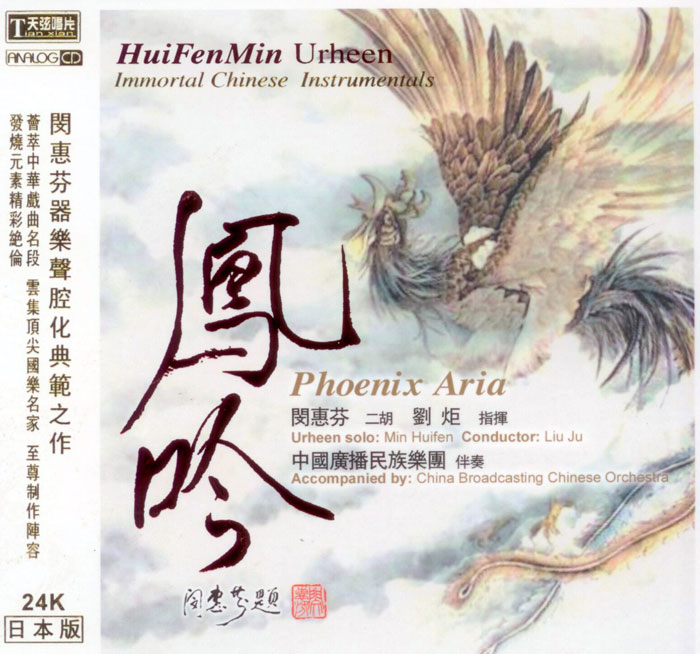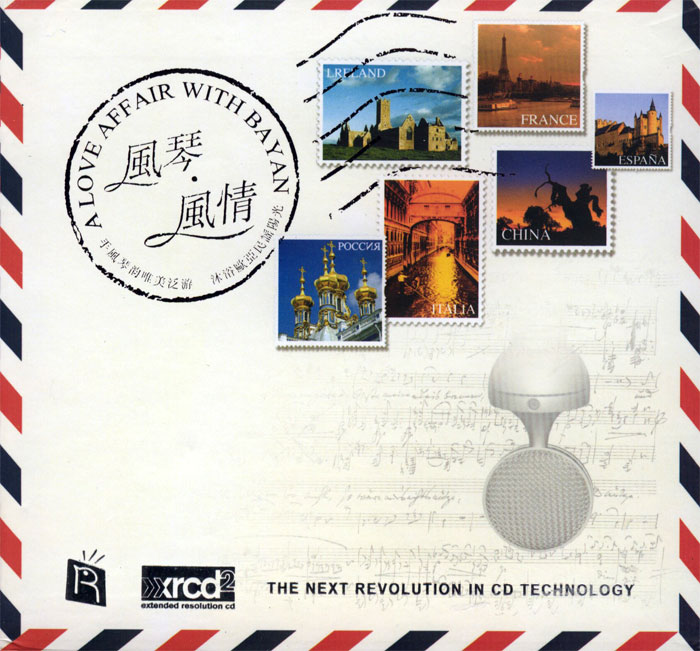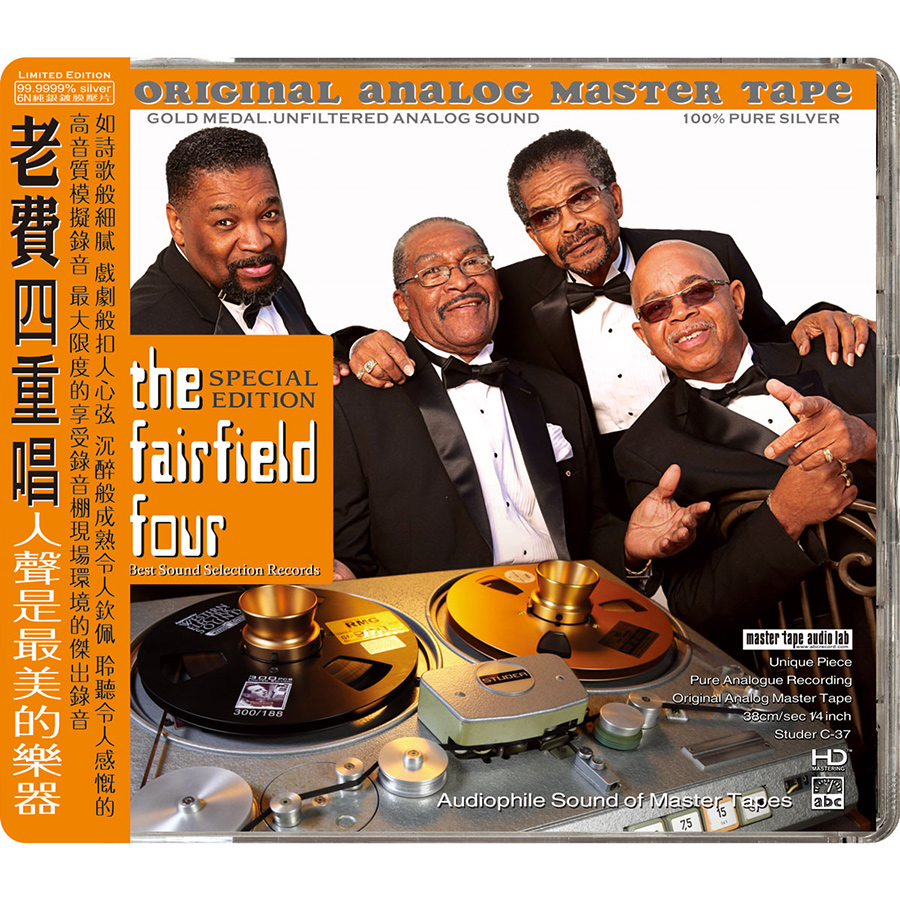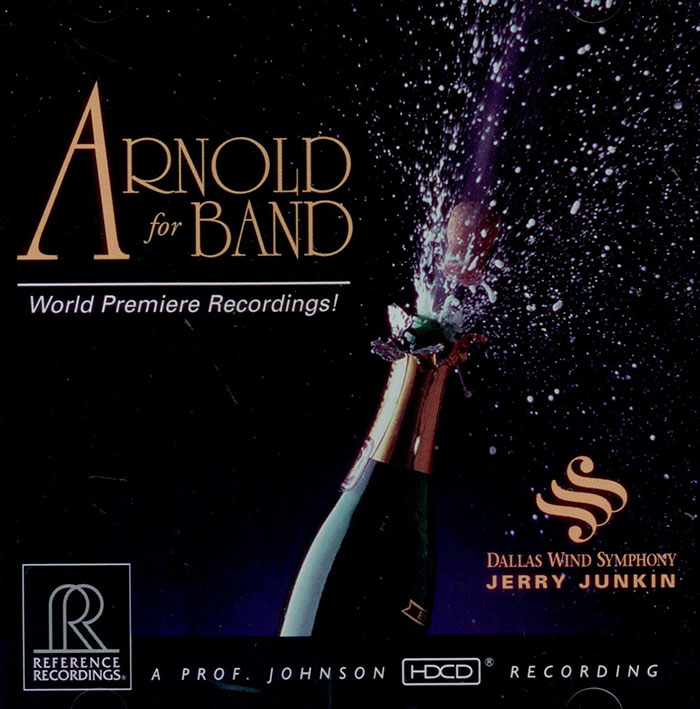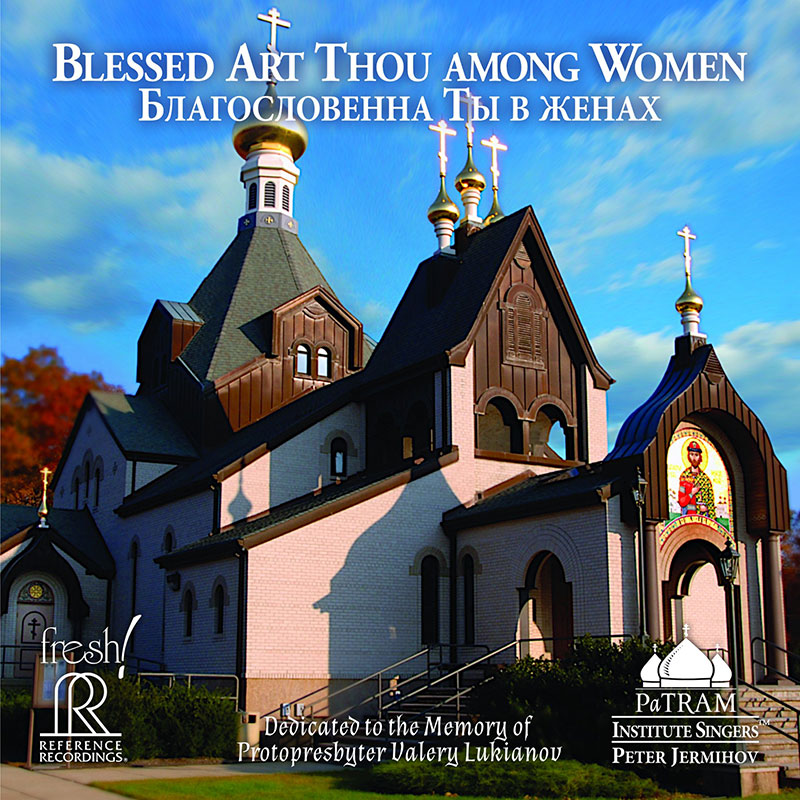Logowanie
Dlaczego wszystkjie inne nie brzmią tak jak te?
SpeakersCorner - OSTATNIE!!!!
RAVEL, DEBUSSY, Paul Paray, Detroit Symphony Orchestra
Prelude a l'Apres-midi d'un faune / Petite Suite / Valses nobles et sentimentales / Le Tombeau de Couperin
Samozapłon gwarantowany - Himalaje sztuki audiofilskiej
PROKOFIEV, Stanislaw Skrowaczewski, Minneapolis Symphony Orchestra
Romeo and Juliet
Stanisław Skrowaczewski,
✟ 22-02-2017
BARTOK, Antal Dorati, Philharmonia Hungarica
Dance Suite / Two Portraits / Two Excerpts From 'Mikrokosmos'
Samozapłon gwarantowany - Himalaje sztuki audiofilskiej
ENESCU, LISZT, Antal Dorati, The London Symphony Orchestra
Two Roumanian Rhapsodies / Hungarian Rhapsody Nos. 2 & 3
Samozapłon gwarantowany - Himalaje sztuki audiofilskiej
Winylowy niezbędnik
ClearAudio
Cartridge Alignment Gauge - uniwersalny przyrząd do ustawiania geometrii wkładki i ramienia
Jedyny na rynku, tak wszechstronny i właściwy do każdego typu gramofonu!
ClearAudio
Harmo-nicer - nie tylko mata gramofonowa
Najlepsze rozwiązania leżą tuż obok
IDEALNA MATA ANTYPOŚLIZGOWA I ANTYWIBRACYJNA.
Wzorcowe
Carmen Gomes
Celebrating the art and spirit of music - vol. 5 - Reference Songs
- CHCECIE TO WIERZCIE, CHCECIE - NIE WIERZCIE, ALE TO NIE JEST ZŁUDZENIE!!!
Petra Rosa, Eddie C.
Celebrating the art and spirit of music - vol. 3 - Pure
warm sophisticated voice...
SAMPLER - STS DIGITAL, Gregor Hamilton
Celebrating the art and spirit of music - vol. 2 - Love songs from Gregor Hamilton
...jak opanować serca bicie?...
SAMPLER - STS DIGITAL
Celebrating the art and spirit of music - vol. 1 - Leonardo Amuedo
Największy romans sopranu z głębokim basem... wiosennym
Lils Mackintosh
Celebrating the art and spirit of music - vol. 4 - A Tribute to Billie Holiday
Uczennica godna swej Mistrzyni
The Fairfield Four
Audiophile Selection
- The Fairfield Four - vocal
ULTRA Analog CD - AAD is a Digital Copy Of The Master Tape - SILVER CD
Cząsteczki srebra są jednolite i mają stały współczynnik odbicia, co zapewnia równą, reprodukcyjną jakość dźwięku. Posrebrzany `CD 6N ma również wyższy współczynnik odbicia niż 24-karatowe złoto.
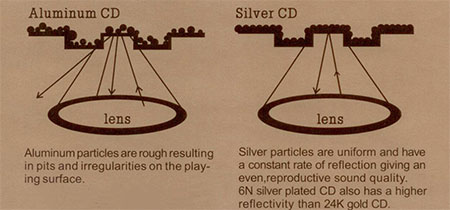 The Fairfield Four, a vocal quartet that has existed for almost a century, presently includes Levert Allison (tenor), Larrice Byrd, Sr. (baritone), Bobbye Sherrell (tenor) and Joe Thompson (bass). The quartet has been dedicated to performing traditional gospel music in the traditional “a cappella” manner since its founding in 1921. Jerry Zolten, who penned the liner notes, characterizes the a cappella singing style of the Fairfield Four as “intertwined voices rhythmically pulsating in harmony, anchored by a deep bass, lead vocal over the top” and “rooted in that hazy past before the era of recorded sound.” This history is recounted in the Pledge Music video promo for the album.
In 1925, when the Fairfield Four organized in Nashville, Tennessee, quartet singing was done a cappella. No instruments, just the human voice. And God saw that it was good. No–great.
During the 1940s, the Fairfield Four were among the top-ranked gospel quartets, along with the Dixie Hummingbirds, Five Blind Boys, and Soul Stirrers. Originally a gospel duet created in the early '20s by the pastor of Fairfield Baptist Church in Nashville to occupy his sons, Harry and Rufus Carrethers, they became a gospel trio with the addition of John Battle. The group was transformed into a jubilee quartet by the '30s and began the first of numerous personnel changes. They recorded for RCA Victor and Columbia during the decade and were known for their reinterpretations of standard hymns, featuring bright, close baritone and tenor harmonies. When the Fairfield Four sang, they utilized the full extent of their voices, moving easily from deep, rolling basslines to the staccato upper peaks of the tenor range, all executed with precise, intricate harmonies and ever-shifting leads.
Over the years, quartets added to the mix an ever-expanding combo of guitar, piano, organ, drums, electric bass, and synthesizer until the music threatened to overpower the vocal harmonies. Whether or not you are a fan of quartet singing with music, we can agree that there’s something seriously magical about hearing a cappella vocal singing.
All but one track is done a cappella, with handclapping and Thompson’s bass voice providing the rhythm. The sole instrument is an organ drone that supports the men who, like church deacons on Sunday morning, lift up the long meter standard, “I Love the Lord, He Heard My Cry.” Another surprise is when country star Lee Ann Womack joins the quartet for a joyous rendition of the Christmas spiritual, “Children Go Where I Send Thee.”
While the original members of the group are long deceased, the new members capture the vocal color that once made the Fairfield Four one of the nation’s most popular gospel quartets. Thompson, in particular, shows effective tutelage from listening to the Fairfield Four’s iconic bass, Isaac “Dickie” Freeman.
The traditional bent of the Fairfield Four is easily understandable when one recalls that the ensemble originated within Nashville’s Fairfield Baptist Church. Their prominence was heightened by the role played by their songs. For example, Zolten explicitly indicates that their “voices were heard on the soundtrack that inspired and propelled the Civil Rights Movement,” including the song “Don’t Let Nobody Turn You Around”. The Fairfield Four therefore see themselves as bearers and custodians of a tradition. Larrice Byrd, Sr. comments, “We all grew up listening to this style of music and we understand it. We want to keep the tradition alive forever.”
The Fairfield Four are the recipients of multiple honors including 3 Grammy Awards, (1) Best Traditional Gospel Recording "I Couldn't Hear Nobody Pray" in 1997, (2) Album of the Year for the "O Brother Where Art Thou" Soundtrack Recording in 2001, (3) Best Gospel Roots album "Still Rockin' My Soul" in 2016, and two Lifetime Achievement Awards. They were also inducted into the Gospel Music Hall of Fame in 1999.
“If you listen to all of our songs, they all came out of the Bible,” says Thompson. “And I know it touches some people. I saw one fellow after a show with his head on Byrd’s shoulder crying like a baby. So I know God had got his hands on what we do.”
The Fairfield Four’s repertoire is a mixture of spirituals, hymns, and an occasional contemporary song—but always with the unmistakable arrangement that is unique to this a cappella group.
In 2016, the Fairfield won a Grammy for Best Roots Gospel Album. It was not just an emotional high point for the group, but also a validation for this newest version of the group. “It was so emotional,” Allison says. “I used to look at people getting them and think. ‘Why are they crying? Why are they doing that?’ But now I understand. It's really unexplainable how you feel getting a Grammy.” Byrd says, “Up until that point, we did feel like we were in the shadows of our predecessors. The Grammy that we received sort of solidified our place.”
And although they are grateful for the acclaim and awards, the members say they have a higher purpose, and a higher calling. “We believe this group was ordained by God, and it's been led by God all the way,” Larrice Byrd says. “Wherever we sing, the message is the same. We are spreading the good news of Jesus Christ through the words of our songs. And we are hoping that we can introduce our Lord and Savior to the ones who haven't accepted Him in their lives.”
In sum, if one accepts the fact – and this, with good reason – that the human voice is the best of musical instruments, then the Fairfield Four exemplifies this in a most convincing way. Gospel music historian Bill Carpenter has mentioned the instrument-like timbre of the Fairfield Four quartet, noting that “when the Fairfield Four sang, they utilized the full extent of their voices, moving easily from deep, rolling basslines to the staccato upper peaks of the tenor range, all executed with precise, intricate harmonies and ever-shifting leads.” Call it instrumental vocality, or vocal instrumentality, if you like!
The Fairfield Four, a vocal quartet that has existed for almost a century, presently includes Levert Allison (tenor), Larrice Byrd, Sr. (baritone), Bobbye Sherrell (tenor) and Joe Thompson (bass). The quartet has been dedicated to performing traditional gospel music in the traditional “a cappella” manner since its founding in 1921. Jerry Zolten, who penned the liner notes, characterizes the a cappella singing style of the Fairfield Four as “intertwined voices rhythmically pulsating in harmony, anchored by a deep bass, lead vocal over the top” and “rooted in that hazy past before the era of recorded sound.” This history is recounted in the Pledge Music video promo for the album.
In 1925, when the Fairfield Four organized in Nashville, Tennessee, quartet singing was done a cappella. No instruments, just the human voice. And God saw that it was good. No–great.
During the 1940s, the Fairfield Four were among the top-ranked gospel quartets, along with the Dixie Hummingbirds, Five Blind Boys, and Soul Stirrers. Originally a gospel duet created in the early '20s by the pastor of Fairfield Baptist Church in Nashville to occupy his sons, Harry and Rufus Carrethers, they became a gospel trio with the addition of John Battle. The group was transformed into a jubilee quartet by the '30s and began the first of numerous personnel changes. They recorded for RCA Victor and Columbia during the decade and were known for their reinterpretations of standard hymns, featuring bright, close baritone and tenor harmonies. When the Fairfield Four sang, they utilized the full extent of their voices, moving easily from deep, rolling basslines to the staccato upper peaks of the tenor range, all executed with precise, intricate harmonies and ever-shifting leads.
Over the years, quartets added to the mix an ever-expanding combo of guitar, piano, organ, drums, electric bass, and synthesizer until the music threatened to overpower the vocal harmonies. Whether or not you are a fan of quartet singing with music, we can agree that there’s something seriously magical about hearing a cappella vocal singing.
All but one track is done a cappella, with handclapping and Thompson’s bass voice providing the rhythm. The sole instrument is an organ drone that supports the men who, like church deacons on Sunday morning, lift up the long meter standard, “I Love the Lord, He Heard My Cry.” Another surprise is when country star Lee Ann Womack joins the quartet for a joyous rendition of the Christmas spiritual, “Children Go Where I Send Thee.”
While the original members of the group are long deceased, the new members capture the vocal color that once made the Fairfield Four one of the nation’s most popular gospel quartets. Thompson, in particular, shows effective tutelage from listening to the Fairfield Four’s iconic bass, Isaac “Dickie” Freeman.
The traditional bent of the Fairfield Four is easily understandable when one recalls that the ensemble originated within Nashville’s Fairfield Baptist Church. Their prominence was heightened by the role played by their songs. For example, Zolten explicitly indicates that their “voices were heard on the soundtrack that inspired and propelled the Civil Rights Movement,” including the song “Don’t Let Nobody Turn You Around”. The Fairfield Four therefore see themselves as bearers and custodians of a tradition. Larrice Byrd, Sr. comments, “We all grew up listening to this style of music and we understand it. We want to keep the tradition alive forever.”
The Fairfield Four are the recipients of multiple honors including 3 Grammy Awards, (1) Best Traditional Gospel Recording "I Couldn't Hear Nobody Pray" in 1997, (2) Album of the Year for the "O Brother Where Art Thou" Soundtrack Recording in 2001, (3) Best Gospel Roots album "Still Rockin' My Soul" in 2016, and two Lifetime Achievement Awards. They were also inducted into the Gospel Music Hall of Fame in 1999.
“If you listen to all of our songs, they all came out of the Bible,” says Thompson. “And I know it touches some people. I saw one fellow after a show with his head on Byrd’s shoulder crying like a baby. So I know God had got his hands on what we do.”
The Fairfield Four’s repertoire is a mixture of spirituals, hymns, and an occasional contemporary song—but always with the unmistakable arrangement that is unique to this a cappella group.
In 2016, the Fairfield won a Grammy for Best Roots Gospel Album. It was not just an emotional high point for the group, but also a validation for this newest version of the group. “It was so emotional,” Allison says. “I used to look at people getting them and think. ‘Why are they crying? Why are they doing that?’ But now I understand. It's really unexplainable how you feel getting a Grammy.” Byrd says, “Up until that point, we did feel like we were in the shadows of our predecessors. The Grammy that we received sort of solidified our place.”
And although they are grateful for the acclaim and awards, the members say they have a higher purpose, and a higher calling. “We believe this group was ordained by God, and it's been led by God all the way,” Larrice Byrd says. “Wherever we sing, the message is the same. We are spreading the good news of Jesus Christ through the words of our songs. And we are hoping that we can introduce our Lord and Savior to the ones who haven't accepted Him in their lives.”
In sum, if one accepts the fact – and this, with good reason – that the human voice is the best of musical instruments, then the Fairfield Four exemplifies this in a most convincing way. Gospel music historian Bill Carpenter has mentioned the instrument-like timbre of the Fairfield Four quartet, noting that “when the Fairfield Four sang, they utilized the full extent of their voices, moving easily from deep, rolling basslines to the staccato upper peaks of the tenor range, all executed with precise, intricate harmonies and ever-shifting leads.” Call it instrumental vocality, or vocal instrumentality, if you like!
